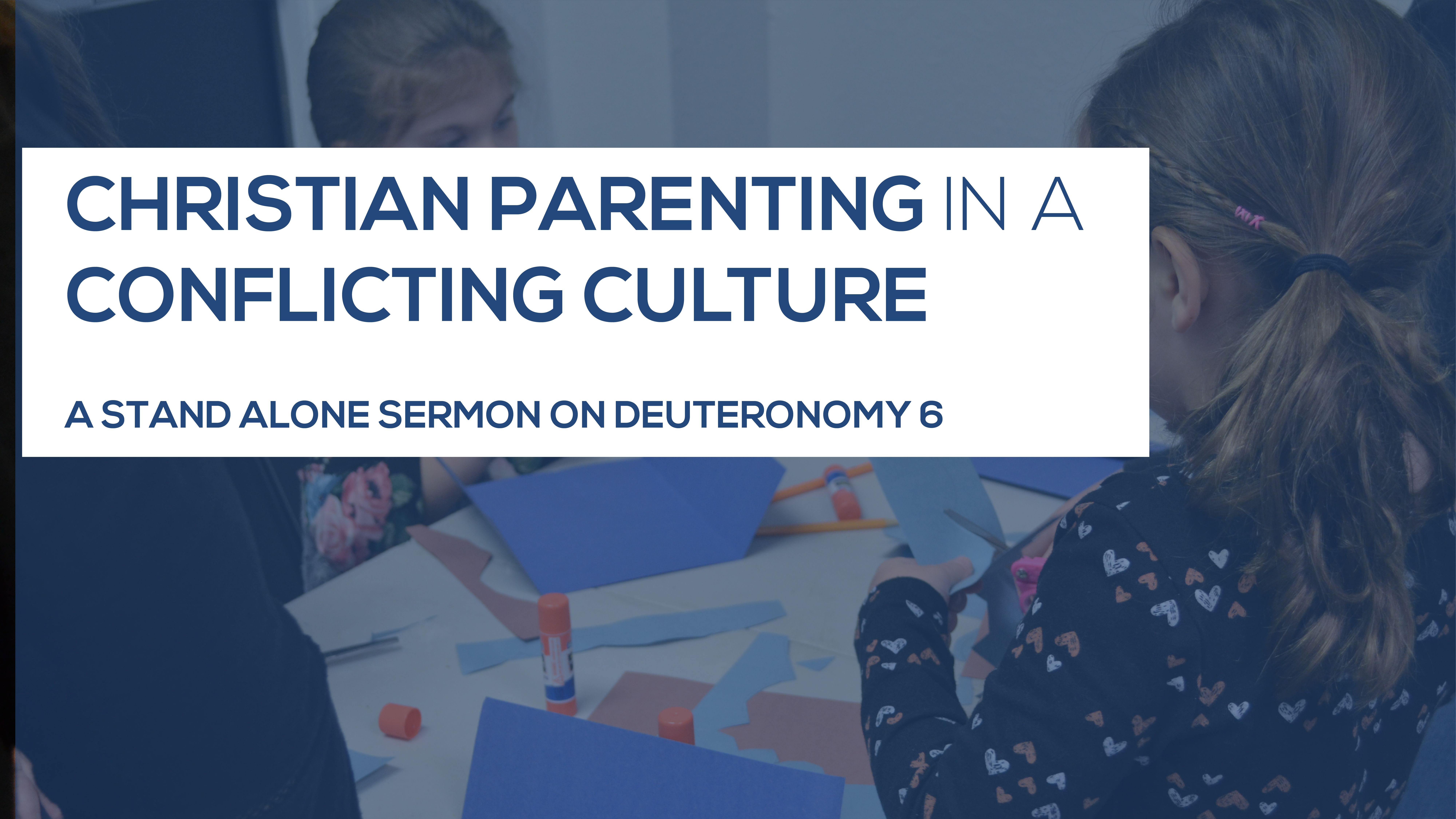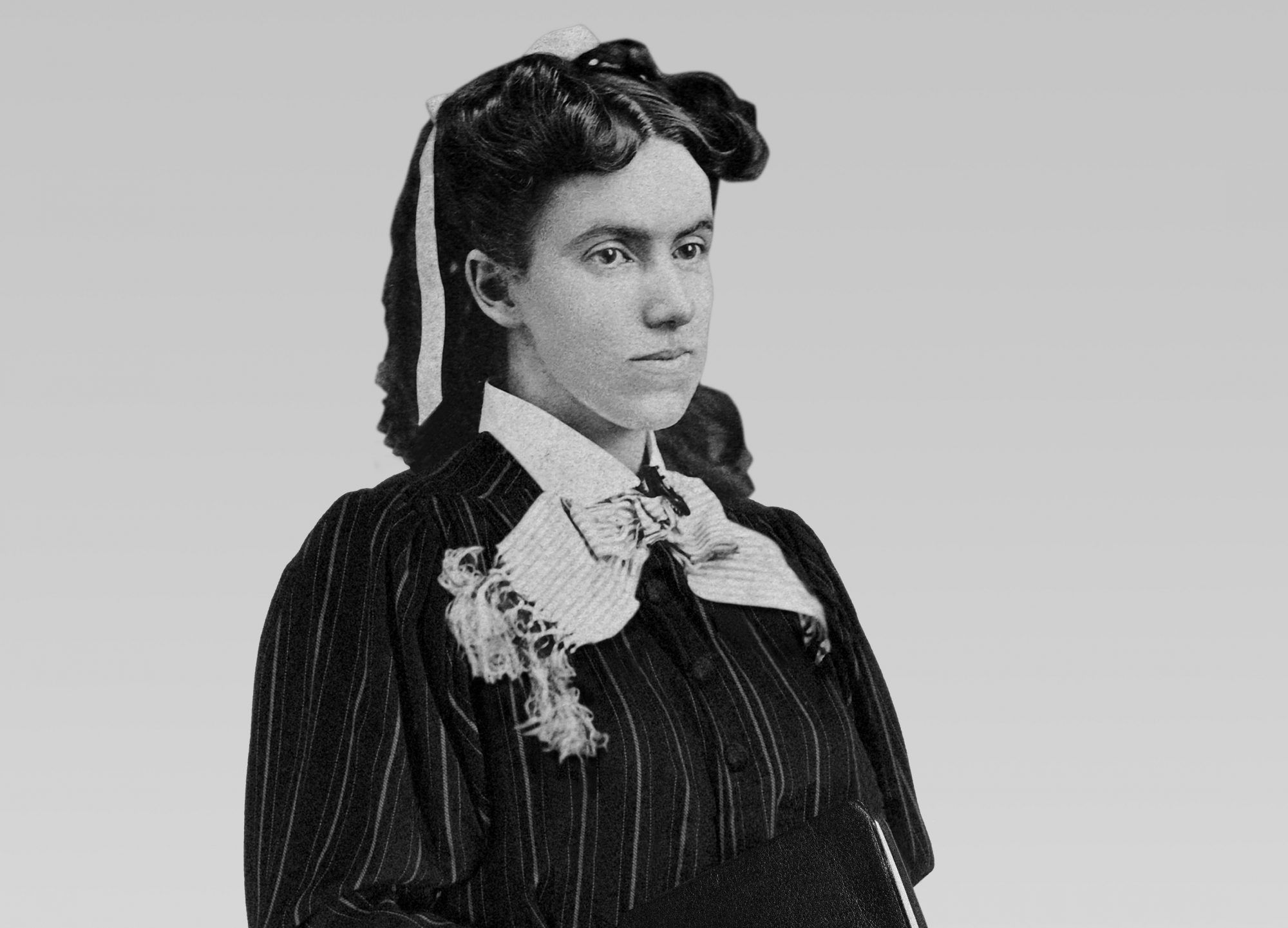* Blog Picture is of Lottie Moon from IMB.org
We recently wrapped up our summer long sermon series on Hebrews 11, a series that pointed us to the faithfulness of God in our lives. The men and women of Hebrews 11 are examples of God’s great faithfulness to His people. We see in Hebrews 12:1-2 that we are surrounded by a great cloud of witnesses, men and women who have gone before us who testify to us of God’s faithfulness.
I want to share with you a little more information on the men and women I shared with you in the sermon from Sunday and a few resources you can read to learn more about church history.
Stephen Langton
Hebrews 11 is incomplete without Hebrews 12:1-2. The Bibles we read from have a helpful tool of which we have given little to no thought. The chapter divisions commonly used today were developed by Stephen Langton, an Archbishop of Canterbury. Langton put the modern chapter divisions into place around A.D. 1227. The Wycliffe English Bible of 1382 was the first Bible to use this chapter pattern. Since the Wycliffe Bible, nearly all Bible translations have followed Langton’s chapter divisions. Up until that point, Scripture was a flowing document only divided by books.
I’m thankful for the chapter and verse divisions in our Bibles. It helps us find Scripture quicker and easier. But they often do a disservice when it comes to understanding the context of a text of Scripture. One example of this is Hebrews 12:1-12.
Polycarp
Polycarp was born in 69 AD and was believed to have been a disciple of the Beloved Disciple John. He was arrested for his faith when he was 86 years old! Dr. Timothy George sets the scene of Polycarp’s death for us. (1)
“It was game day in Smyrna, a holiday. Twenty-thousand bloodthirsty fans of torture and violence had turned out to see the shows. This violence was by design. Smyrna was the epicenter of the Roman spectacle. Up in Pergamum, just a few miles to the north, there was a school for training gladiators. The program of the day went like this: In the morning, the wild animals were let loose into the arena, hunted down and killed. Later in the day, the gladiators themselves would fight. But in the afternoon, with the sun high in the sky, it was time for the execution of the criminals. There were a lot of them: slaves, war captives, arsonists, murderers and those like Polycarp who had committed sacrilege by refusing to honor the godhead of Caesar and who would not take the easy way out.
So the proconsul said to Polycarp, “Take the oath. I will let you go. Just revile Christ.” Polycarp answered, “For eighty and six years I have been his servant, and he has done me no wrong. And how can I now blaspheme my king who saved me?”
He offered a prayer in the name of the triune God, and then he was bound. The wood was lit. Like Jesus, who was crucified naked, Polycarp entered the flames without his clothes. But when they saw that his body would not be burned by the fire, an executioner was called to stab him with a dagger. And so he was killed by fire and sword. About a generation after Polycarp, another great teacher of the early church, Tertullian, made a famous statement we often remember: “The blood of the martyrs is the seed of the church.” That man was Tertullian.
TERTULLIAN
He was born around 170 AD in North Africa, and after his conversion, spoke strongly concerning the doctrine of God and was strongly opposed to society’s wickedness. As far as we know, he was the first person in the history of the church to use the word “Trinity” to summarize the New Testament teaching.
Reflecting on the early days of persecution amongst Christianity Tertullian penned these words to the Roman emperor to show him that the gospel was indeed thriving despite the persecution: “We are but of yesterday, yet we fill your cities, islands, forts, towns, councils, even camps, tribes, the palace, the senate, the forum; we have left you the temples alone.”
JOHANN VON STAUPITZ
Fast forward several centuries to 1469, a man named Johann Von Staupitz was born in Germany. Staupitz was a Christian scholar who was asked to help start a new university in Wittenberg, Germany. It was there he met a young monk who was a professor at the university at the time. Here is how one author recorded it. (2)
“This young man was struggling with the need to confess completely everything he had ever done wrong. He wore Johann von Staupitz out, trying to remember every sin that his mind would try to cover up. On at least one occasion, he confessed for six hours straight.
Johann tried to explain God’s grace to the young man. Surrender to the love of God, he counseled. Lose himself in God, he said. He was making religion too difficult. All he needed to do was love God. But the young man was tormented by fears and doubts. “I was myself more than once driven to the very abyss of despair so that I wished I had never been created. Love God? I hated him!”
“I don’t understand it!” replied the long suffering Johann when the student reported this latest line of reasoning to him. He reminded him that Christ died to remit our sins. However, the student was so afraid of Christ, the judge, that he could not turn to him for relief. Eventually, that young man came to know Christ as Savior. His name was Martin Luther who would go on to be a leading Reformer and post the 95 Theses which spoke against the teachings of the Catholic church. If it had not been for Dr. Staupitz, I should have sunk in hell,” said Martin Luther.
GEORGE LIELE
Germany feels so far away, so let’s bring church history a little closer to home. George Liele came to Christ in 1773, at the age of twenty-three, and was baptized by his white pastor, Matthew Moore. Sometime after Liele’s conversion, his owner, Henry Sharp, who was a Baptist deacon, gave Liele his freedom so he could pursue God’s call. Liele preached for two years in the slave quarters of plantations surrounding Savannah and into South Carolina after his conversion. Because of his faithfulness and powerful preaching of the Word, many surrendered their lives to Christ. George Liele was ordained on May 20, 1775, becoming the first ordained African American Baptist preacher in America. After his ordination, he planted the first African American Baptist Church in North America, a church still in existence today.
In 1778, Henry Sharp was killed in the Revolutionary War. After his death, Sharp’s heirs took steps to re-enslave Liele. As a result of their actions, Liele was thrown in jail. Eventually, he was able to produce proper documentation concerning his freedom and was set free. Soon after his release, George and his wife, Hannah, and their four children left Savannah and landed in Kingston, Jamaica, in 1782 where they served as missionaries to the Jamaican people.
Not only was Liele an effective missionary and evangelist, he was known for encouraging his converts to go preach the gospel to the lost. As a result of his leadership, they went to Savannah, Georgia, Nova Scotia, and Sierra Leone.
Adoniram Judson is often cited as the first Baptist missionary from the United States. But, in fact, this designation belongs to George Liele. His story is an important part of missionary history and is worthy of emulation.
LOTTIE MOON
Lottie Moon is an inspiration to all Christians and her story is a vital part of the International Mission Board’s (IMB) efforts to send out more missionaries and raise financial funds to support them. Here is Lottie Moon’s story, as told by the IMB. (3)
Born Charlotte Digges Moon, December 12, 1840, in Albemarle County, Virginia. Lottie rebelled against Christianity until she was in college. In December 1858, she dedicated her life to Christ and was baptized at First Baptist Church, Charlottesville, Virginia. In 1873, Lottie, as a single woman, left home to take the gospel message to China. Lottie served 39 years as a missionary, mostly in China’s Shantung province. She taught in a girls’ school and often made trips into China’s interior to share the good news with women and girls.
A young woman serving as a clerk for the Foreign Mission Board signed for the small brown package. She probably wasn’t aware at the time that the package contained the ashes of Charlotte Digges Moon — the Lottie Moon who was loved in China and revered in the U.S. and whose legacy would become a symbol of Southern Baptist missions around the world.
Forced out of China due to malnutrition and sickness, Lottie’s 50-pound frame could not survive the journey back to the United States. Though thousands mourned her passing, her life’s work in China represented eternity to many. She was the missionary who believed strongly in the teaching of young girls and started schools, though the community’s men scorned her for it. She passionately spoke out against the gruesome practice of foot-binding, offering relief to hundreds of girls whose families were swayed by Lottie’s persuasive arguments against it. She visited thousands of homes to teach the Scriptures, evangelized while she walked from village to village, and led in her Chinese church. She wrote letters back to the U.S. pleading for more funds, more workers and more prayer.
Near the end of her ministry, she had given of herself, her food, her supplies so completely, that she had little left on this earth, but riches abundant in heaven.
Learning from these witnesses of God’s faithfulness encourages us to trust in His faithfulness as well. Here are some additional resources for you to learn more about the saints who have gone before us.
BOOKS:
IN THE YEAR OF OUR LORD: REFLECTIONS ON TWENTY CENTURIES OF CHURCH HISTORY by Sinclair Ferguson
The story of the church is important for Christians to know, for it contains rich and uplifting stories of God’s dealings with His people. Dr. Sinclair B. Ferguson takes the reader on a tour of the Christian history, featuring stories and songs to give believers a sense of their place in God’s kingdom and to encourage them in their walk.
21 SERVANTS OF SOVEREIGN JOY: FAITHFUL, FLAWED, AND FRUITFUL by John Piper
In this book, John Piper explores the lives of twenty-one leaders from church history, offering a close look at their perseverance amidst opposition, weakness, and suffering. Let the endurance of these faithful but flawed saints inspire you toward a life of Christ-exalting courage, passion, and joy.
FOXE’S BOOK OF MARTYRS by John Foxes
In 1563, John Foxe began writing a book in tribute to Christian martyrs, beginning with Stephen, the first believer who died for the cause of Christ. Foxe’s original work ended with the martyrs of his own day — those who were killed during the reign of “Bloody Mary.” He wanted the Church to remember the martyrs, for he knew that the blood of the martyrs truly is the seed of the Church.
WEBSITES:
175 YEARS OF THE INTERNATIONAL MISSIONS BOARD
Since 1845, almost 25,000 Southern Baptist missionaries have shared the gospel, made disciples, planted churches and planted their lives in 185 countries around the world. This interactive timeline celebrates 175 years of Southern Baptists on mission through the International Mission Board, which was originally called the Foreign Mission Board. Get to know missionaries whose names may have been forgotten but whose stories remind us of the power of God and the courage of His people. Learn about significant moments in Southern Baptist history, often shaped by events happening in the world at large. Celebrate God’s faithfulness through 175 years of remarkable missions history.
PODCASTS:
5 MINUTES IN CHURCH HISTORY
Travel back in time with Stephen Nichols to look at the people, events, and places that have shaped the story of Christianity. This podcast offers an accessible glimpse into how God has worked in the church and how this can encourage us today.
Footnotes:
1 – https://www.beesondivinity.com/blog/2019/martyria-polycarp
2 – https://www.christianity.com/church/church-history/timeline/1501-1600/johann-von-staupitz-luthers-confessor-11629932.html
3 – https://www.imb.org/175/missionary-profiles/lottie-moon/








